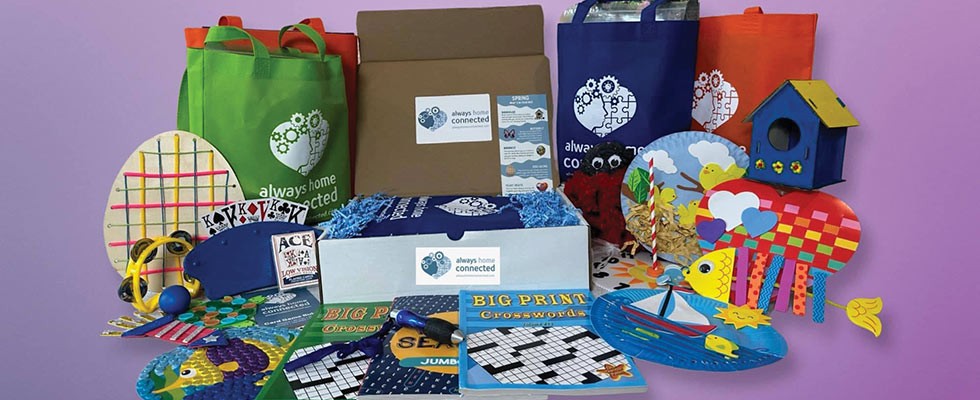
“You don't know what you're in for until it hits you. And then when it hits you, you're already in the middle of it,” Debbie Axel said.
When Axel’s mom was diagnosed with Alzheimer’s, she quickly learned what made a great caregiver great. It wasn’t sitting by on a phone while their client sat watching TV for hours on end—it was bringing them to functions and taking them to hair and nail appointments; it was the pursuit of keeping them engaged. Mary Anne Roberto came to understand the same thing when her mother also began to show signs of cognitive decline and was ultimately diagnosed with Alzheimer’s.
“We wanted to make sure other people understood what they needed in a caregiver, and then, organically, Always Home Connected kind of came into the picture,” Axel said.
After experiencing dozens of caregiver agencies, the two took the positives they’d seen throughout the process and created Always Home in 2019. When the pandemic hit in 2020 and caused them to shift their plans slightly, Always Home Connected began as a sort of side project.
Now, Always Home Connected is a one-stop-shop for activity boxes, sensory toys and other products for older adults with dementia. It’s still true to when Roberto and Axel recognized a need for activities for those with cognitive decline to engage with their care partners when it was hard to get out and do things in their Santa Monica community.
The kits ship nationwide, with four variations of their seasonal activity boxes that feature a minimum of 10 different activities from arts and crafts, music, dexterity tasks and logic puzzles that aim to “engage the senses and stimulate the brain,” they say. They stress the importance of creating experiences between the individual and their caregiver, while also providing tools that can be helpful for memory and coordination.
“It's really important to keep people engaged and connected,” Axel said. “And we look at what we're doing as a great resource and tool for caregivers, and family members who are being caregivers to their loved ones to engage and interact.”
The boxes are designed in consultation with specialists, aging service providers, family and friends.
In addition to the individual activity box, they also sell group boxes for those in residences or retirement communities, parent activity boxes, specialty sensory toys and products and on-the-go bags.
The activities can also act as conversation starters as caregivers do the activities alongside clients.
“For my mom's caregiver, I think the hard part was they were so culturally different,” Roberto said. “They didn't know where to start. So, I started out with cookbooks and stuff because that was my mom's passion. But I wish I would have had these things. My mom loved to paint and draw. I think it would have been it helped build their relationship a lot quicker.”
Axel said much of the feedback they receive is from family members excited to have a way to connect with their parents again.
“It's not their mom, who they knew. So, they're working with this person who is their mother, but isn't the mom they grew up with,” Axel said. “So, it they are very thankful for the ability to have something to do with these people.”
Another positive of working together is making memories with loved ones. It’s a way to be present with a parent or grandparent instead of being overwhelmed by the unknowns, which is common for the family of those with dementia. Sometimes, Roberto said, allowing yourself to be present is the best thing you can do.
“The best advice I could ever give is sometimes, just be in the moment,” Roberto said. “The minute I got my mom's diagnosis, I felt like I was always trying to figure out what the next thing I was going to do was, rather than just being still and being in that moment with her.”
For more information, visit alwayshomeconnected.com, or email info@alwayshomeconnected.com.
Meg Herndon is managing editor for HomeCare Media.
